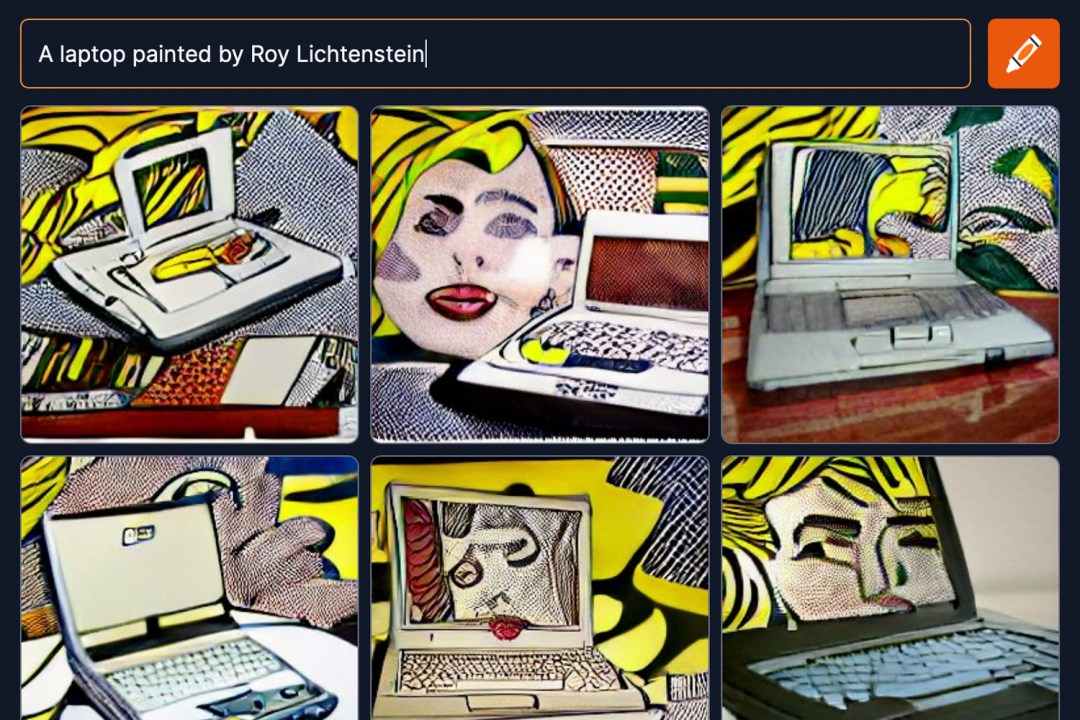AI is primed to eat the world – but it’s dining on what people already created
From Craiyon to OpenAI, an AI creative revolution is afoot, but it’s currently a blazing fast remix of existing material

You can’t swing a lolcat online today without whacking its head on grids of deeply weird images. From Cucumber Connect 4 to Cthulu Kandinsky, these are oddball products of AI – usually Craiyon (formerly DALL·E mini) – which visually interpret text input. If doomsayers are to be believed, this technology will soon lead to the redundancy of all human artists.
One look at a Craiyon doodle should give you pause at that statement. The output is best described as ‘terrifying melted collage’. But then Craiyon is a junior effort in this space. By contrast, DALL·E 2 takes things to the next level, creating eye-popping pictures of any subject, in any style, in a fraction of the time it would take an artist to conceive an image, let alone draw it.
So will it replace humans? In being trained on countless existing images and visual styles, you might surmise this more advanced AI echoes humanity, learning by copying – but at speed, and with relentlessly technically expert results . But you might instead argue it’s also essentially a modern-day Roy Lichtenstein on a massive scale – more clever plagiarist than original artist, remixing existing content in fast forward. It needs material to draw on. Without it, DALL·E 2 has no means to create anything truly new.
That leaves risks on both sides of the divide. If someone can ping an AI to get a bespoke image, that’s quicker and cheaper than commissioning a human. But DALL·E 2 and similar AI models have potential to land people in a rights pickle, along with risking an angry mob of illustrators armed with sharpened boxed copies of Photoshop rocking up on the doorsteps of people who use them.

Still, you can see the direction of travel. Creatives will increasingly exist in a narrowing space that involves constant learning and demands genuinely imaginative and visionary thinking. Which gave me pause for thought. The internet is full of words too, and there are AIs that bang out endless text, having already gulped down every scrap of publicly available online copy.
I make a living smashing words into shape, but what happens when an AI can do that faster and better? Eek! So in the name of research – and totally not because I had word count to fill – I asked OpenAI to write “a funny op-ed for Stuff.tv”. Here’s what it came up with:
AI is coming for our jobs. There’s no doubt about it. In just a few years, robots will be able to do our jobs better than us. They’ll be able to think faster, work longer hours, and never get tired.
But there’s one thing that robots will never be able to do better than us: be boring.
Sure, they might be able to do our jobs better than us. But they’ll never be able to do them with the same level of boredom that we can. That’s because boredom is a uniquely human trait.
So when the robots come for our jobs, we shouldn’t be afraid. We should be bored.
Um, yeah. There’s a germ of a piece there – a shortcut to an idea – but the AI doesn’t make the distinction between being boring and being bored. So I ran the model several more times. The results were mostly painfully generic, but I did notice it in many cases captured the Stuff voice – albeit a version that was either very drunk or extremely forgetful.
And then this happened:
AI is not going to take over the world. It’s not even close to being intelligent enough to do that. In fact, it’s not really intelligent at all. It’s just a bunch of algorithms that can sort of imitate human behaviour.
Yikes! Having now figured out what it is, we can assume this AI just became sentient and is now ready to come for us – at least all the writers. If next week this column is written by CrAIg Grannell, you know why.
- Sony AI’s Gran Turismo Sophy is a “superhuman AI agent” designed to outrace the world’s best players



